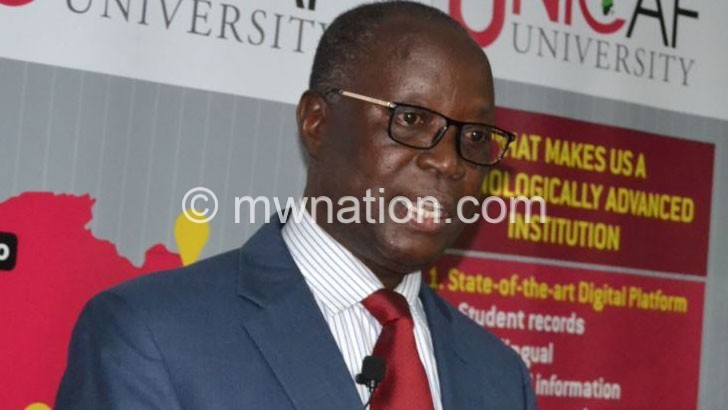Malawi resistant to cashless economy—Chuka
Former Reserve Bank of Malawi (RBM) governor Charles Chuka has attributed the country’s inability to move towards a cashless society to power shortages, high Internet and phone charges and lack of stable income for many people.
He said this in Lilongwe on Friday during a lecture on cashless economy, an economic state in which financial transactions are not conducted in form of banknotes or coins, but through the transfer of digital information usually an electronic representation of money between the transacting parties.

In his presentation titled A Cashless Economy: Is Africa and Malawi Ready for It made at Unicaf University, Chuka indicated that close to 90 percent of transactions in Malawi are done through cash compared to 29 percent cash transactions in countries that have adopted the cashless economy.
About 55 percent of Malawians do not have a bank account and only 34 percent of adults have an account which can enable them transact electronically, according to a recent Finscope study.
Said Chuka: “We need more people to have jobs and farmers to have regular income so that they have access to technology and use this easy way of paying for their products and services.
“I believe the presentation will give room for the central bank to start investigations and look at how many people in the country are using the cashless system.”
Crypto Consultancy executive director John Chirwa said commercial banks cannot avoid having cash because it helps them and that cryptocurrency cannot be regulated which is one of the reasons people are reluctant to be cashless. “We need academicians to open up and tell people more on the importance of a cashless society. We need research which will help us to move as an economy,” he said.





